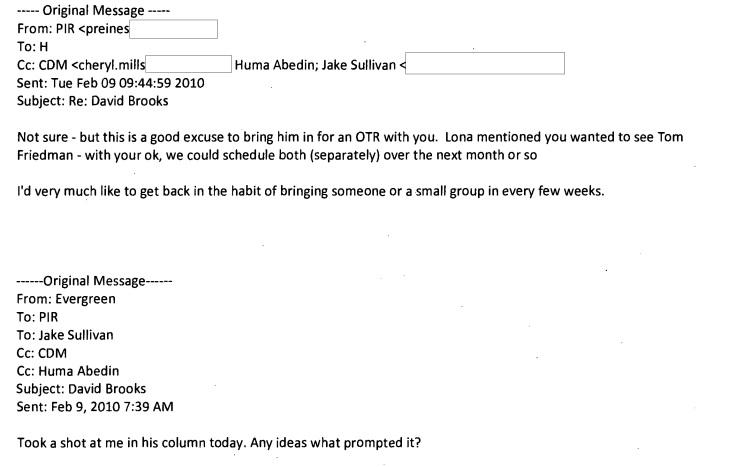When a president is rudderless as Barack Obama is, all ships, soldiers and strategy fall silent as the enemy fills the gaps with successful terror. Retired General Petraeus announced a option of perhaps peeling off al Nusra (al Qaeda) fighters and enlisting their resources as allies to take on the fight against Islamic State. This raised some real eyebrows. Is there reality in this plan or is it desperation?
Petraeus’s Plan to Defeat Islamic State Won’t Work
By Josh Rogin
Bloomberg: Former CIA Director David Petraeus today confirmed that he is urging Obama administration officials to try to peel off some fighters from the radical al-Nusrah group, to join the U.S.-led coalition fighting ISIS. But Petraeus’s explanation does not account for the fact that U.S. policy in Syria has been alienating the “reconcilable” Islamists for over four years.
“We should under no circumstances try to use or coopt Nusrah, an al-Qaeda affiliate in Syria, as an organization against ISIL,” Petraeus told CNN. “But some individual fighters, and perhaps some elements, within Nusrah today have undoubtedly joined for opportunistic rather than ideological reasons: They saw Nusrah as a strong horse, and they haven’t seen a credible alternative, as the moderate opposition has yet to be adequately resourced.”
It sounds like the “Sunni Awakening” from his time in Iraq, but there’s little to no chance of repeating that in Syria today. Recent U.S. action, and inaction, shows why.
Just last week, the commander of Division 30, the Syrian “moderate” opposition group that hosts a few dozen U.S.-trained fighters, sent out a worrying notice: His troops had just been bombed by planes from Assad’s air force. The U.S. military did not respond.
“We have no information on whether Assad forces targeted Vetted Syrian Opposition Groups or the New Syrian Force specifically,” Lieutenant Commander Kyle Raines, U.S. Central Command spokesman, told me, using the official term for the 54 Syrian soldiers who were trained and armed by the U.S. and sent back into Syria to fight the Islamic State.
Only three weeks earlier, the U.S. military did respond with force to an attack on Division 30, this time coming from al-Nusrah, the Syria rebel group affiliated with al-Qaeda. Nusrah had kidnapped some of the U.S.-trained fighters and killed others, and the U.S. military sent drones to exact retribution. But Division 30 itself was opposed to the U.S. attacks on al-Nusrah and pledged never to fight the group, only the Assad regime and the Islamic State.
In 2012, when he was C.I.A. director, Petraeus and Secretary of State Hillary Clinton proposed significantly arming the Syrian opposition, a plan supported by Defense Secretary Leon Panetta and Joint Chiefs Chairman Martin Dempsey. But the White House rejected the plan, and U.S.-supported opposition groups were routed.
Now Petraeus is proposing to separate the “reconcilables” from al-Nusrah to fight against the Islamic State. He compared the plan to the Sunni Awakening in Iraq in 2007 and 2008.
“In Iraq, during the Surge, Sunni tribes and insurgent groups that were previously aligned with AQI (al Qaeda in Iraq) switched sides because they concluded that there was a better alternative — namely, partnership with us and, ultimately, the government of Iraq — and because they saw that AQI was a losing bet,” Petraeus said. “The process of ‘reconciliation’ contributed significantly to the defeat of al Qaeda in Iraq in 2007-2008, a situation sustained for 2-3 more years.”
He acknowledges that the Sunni Awakening in Iraq broke down after most of the agreements with Iraqi Sunni tribes were broken by the Iraqi government. He also acknowledges that Syria and Iraq are not the same. But Petraeus concludes that the U.S. should work to defeat radical groups in Syria “by splintering their ranks by offering a credible alternative.”
The key problem with Petraeus’s idea is that the U.S. may no longer have any chance of being “credible” in Syria. Four years after the crisis began, U.S. support for groups fighting the Assad regime has slowed. Those moderate groups that haven’t been crushed or coopted by Islamic groups feel abandoned by Washington.
The $500 million program to train and equip fighters in Syria has been hampered by the fact that new recruits are compelled to pledge not to fight Assad. Obama administration officials are pursuing a de facto policy of regime preservation while paying lip service to the unfounded hope for a political process whereby Assad would negotiate his own departure.
Petraeus was not wrong in 2012 when he called for robust American support for moderate opposition forces in Syria. But in 2015, that plan has been overtaken by events. Unless the Obama administration completely reverses course — creating a Syria policy that is about more than quashing the Islamic State — the Petraeus plan can’t work.
All Syrian groups fighting the Islamic State derive their credibility from the Syrian people in the lands they control. Petraeus is right that Syrian tribes can be persuaded to break from al-Nusrah and join a U.S.-backed cause.
“U.S. regaining credibility wouldn’t take much; it would take stopping barrel bombs from falling on civilians,” said Mouaz Moustafa, executive director of the Syrian Emergency Task Force, a nongovernmental organization that works with rebel groups on the ground. “The reason that the U.S. does not have any credibility with armed groups on the ground is because it is seen as supporting Iran, Russia and the Assad regime.”
There are other reasons Petraeus’s plan has little chance. In Iraq, the U.S. had over 100,000 troops, tens of billions of dollars to spend, a relationship with the host government that could be leveraged, and the political will to commit U.S. attention to the matter. None of those things exist in Syria today.
The Obama administration appears content to contain the Islamic State in Syria, and after years of missed opportunities, Obama seems unlikely to confront Assad. Syrians remember when Obama last year said that the entire idea that a group of “former doctors, farmers, pharmacists and so forth” could defeat the Assad regime and its supporters has “always been a fantasy.”
The nature of the American commitment in Syria is not likely to change. Not even the hawkish leading Republican presidential candidates are supporting a dramatic increase of American resources or personnel to turn Syria around. The only Syrian “awakening” will be when Assad does fall — and the U.S. realizes it has no friends there to represent its interests.
Come the F*ck On: al Qaeda Is Not Our Ally!
Enemies becoming friends is seemingly all the rage these days. First Cuba. Then Iran. Now, there are those arguing that al Qaeda must also be brought into the fold. That’s right: the same group which fly planes into our buildings, blows up our tube networks, embassies and longs for the return of the Caliphate.
The argument seems to be catching on. The journalist Ahmed Rashid has recently taken to the pages of the New York Review of Books (“Why we need al Qaeda”) and the front cover of The Spectator (“Al Qaeda to the rescue”) to question whether al Qaeda “might be the best option left in the Middle East for the US and its allies.” The argument goes that the U.S., regional Arab powers, and Turkey have a shared enemy in Bashar al-Assad, Iran and its proxies. Al Qaeda not only shares these enemies, it is at the frontline of this fight in Syria and Yemen.
Rashid also says that al Qaeda is going through “dramatic changes” and is now taking a “soft line” on certain issues. Charles Lister from Brookings has also explored potential al Qaeda moderation—with the headline used in his May article for the Huffington Post, “An Internal Struggle: Al Qaeda’s Syrian Affiliate is Grappling with its Identity,” making the group sound more like a 16 year-old goth from Portland than a murderous terrorist organization.
Other, less savory figures have spoken out on other ways in which al Qaeda may be useful. Moazzam Begg—the former Guantanamo Bay detainee—cites Rashid while arguing that “the most credible voices against IS have been Islamic clerics traditionally associated with al Qaeda”: Abu Qatada and Abu Muhammad al-Maqdisi. These two jihadist theologians’ fatwas have been used to justify barbaric violence for decades. Yet Begg laments the UK government’s reluctance to reach out to such figures, arguing that it would help avert a repeat of the massacre of British tourists that just occurred in Tunisia.
This is largely unsurprising coming from Begg, who has long argued the Islamist cause. Yet as others view al Qaeda as a potentially constructive partner, it is worth exploring this thesis on its merits.
The examples of moderation cited by the likes of Rashid are anything but. A statement from Abu Mohammed al-Joulani, the head of al Qaeda’s Syrian affiliate, saying that he was under instructions not to use Syria “as a base to launch attacks on the West or Europe” is highlighted as a sign of progress. However, even this concession—as deeply generous as it is—is not because of a lack of desire to kill more Westerners; it is “so as not to muddy the current war” in Syria. A change in tactics should not be confused for a change in strategy.
The al-Nusra Front also remains proud of al Qaeda’s past successes when it comes to mass murder. A propaganda video they just released is heavy on video footage from 9/11—an attack described in the video as “the most effective solution”—and speeches by Osama bin Laden.





